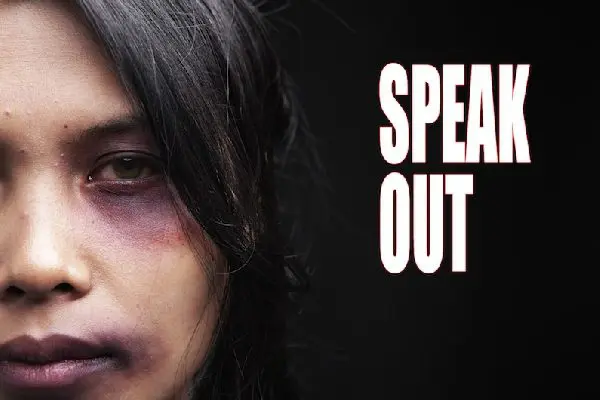
A Dearborn man murdered his wife and committed suicide on Sunday. The ordeal unfolded in front of the couple’s children. According to police, the husband was “estranged”, but sources who knew the victim said he was abusive during the days of their marriage. Domestic violence is wrong, inexcusable and can turn deadly. We all have a responsibility to stop it.
This weekend’s murder-suicide is not the first major domestic violence crime to rock the community in recent years. Last year, an Arab American man stabbed his sister to death. At the time, sources told us that he used to beat her prior to the death.
These murders could have been prevented if the abuse had been reported in its early stages.
In a tight-knit immigrant community, breaking away from abusive relationships can be challenging. The perpetrators of violence are often the sole economic providers to the victims, who might not be able to get jobs because of language barriers.
There is also an undeniable stigma in our community that discourages victims from seeking help. For example, a woman who calls the cops on a husband who beats her could be portrayed as shameless for bringing disgrace to the family and exposing its affairs to strangers.
However, this victim-shaming must cease to exist and be replaced with compassion. Victims should be empowered to leave the abuse and seek healing.
Our mosques, churches and community organization should combat the stigma and encourage and provide relief for victims.
But it is not only incumbent upon institutions to act. Individuals also have a role in standing against domestic violence. If you know of an abusive spouse, parent or sibling, it is your duty to report him or her. You owe it to the victims and the community to alert parties that can assist abused individuals, even if it is the police. A problem does not go away if we ignore it; it merely fades away from our active memory, but it can turn into a murder that would haunt the conscience of our society.
Arab people are private. We are terrified of bad news spreading about our families because the family unit represents all of its individual members. Our fear of scandals often causes us to overlook and sometimes cover up issues that endanger us. The notions of “jorsa” or “fadiha”, which are shameful scenes or scandals, even manifest in our language when terrible events occur and become a public matter. The outcry shifts from the pain of the event itself to the fact that it has become news.
We experienced this first-hand at The Arab American News when we reported about suicides in the community. We were attacked for telling the stories of those tragedies, as if the suffering was caused by the news not the incidents themselves.
But what is more scandalous: the silent suffering of wives at the hands of husbands, siblings at the hands of siblings, children at the hands of parents, or exposing these injustices? What is more of a shameful scene: a woman leaving an abusive relationship or a murder-suicide that made headlines over the region?
More to the point, domestic violence is not an Arab or Muslim problem. It afflicts every community.
According to the Centers for Disease Control and Prevention, 20 people are victimized by domestic violence in the United States every minute. More women have been killed by their current or former significant others from 2001 to 2012 than we have lost people in the 9/11 attacks and the wars in Iraq and Afghanistan combined, according to an FBI report.
But change always starts at the individual level. Let us rid our community of domestic violence by reporting it when it happens around us.






Leave a Reply